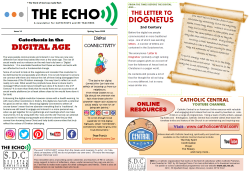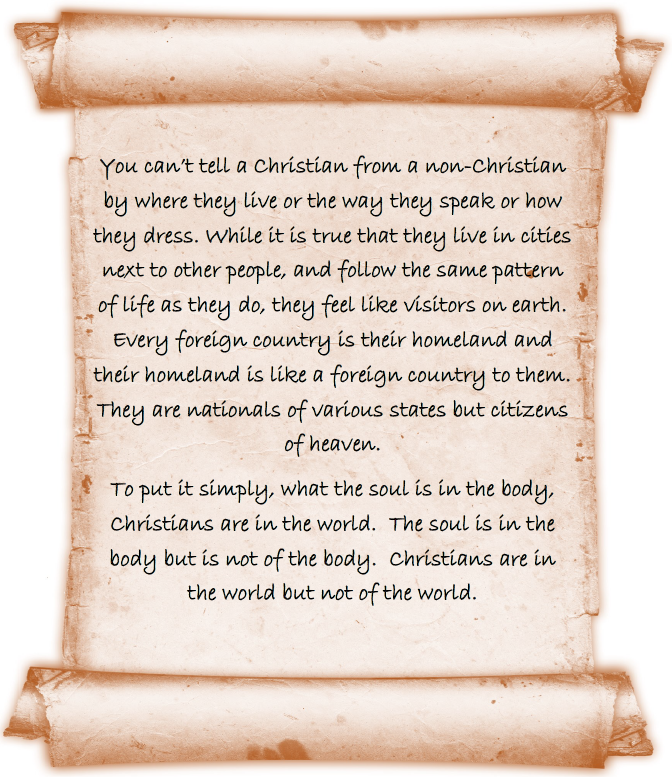More about SDC
PRAY and REFLECT
Other issues
Issue 14: Spring 2020
Download the pdf version of this issue by clicking here.
The word ‘CATECHIST’ comes from the Greek word meaning ‘to echo’. As Catechists or teachers of RE we do not proclaim our own word. We echo the message of Jesus Christ our Lord. This newsletter aims at providing parish catechists and teachers of RE in schools some support in terms of reflections, ideas, useful resources they can use and so on. Feel free to share with other colleagues and friends. There is also a pdf version which you can download by clicking on the thumbnail below.

| In this issue |
| Catechesis in the Digital Age |
| Digital Connectivity |
| From the times before the digital age... The Letter to Diognetus |
| Online Resources - The Catholic Central Youtube Channel |
Catechesis in the Digital Age

The ways people communicate and interact in our time are now very different from what they looked like even a few years ago. The rise of social media and our reliance on the web has truly been a ‘Digital Revolution.’ It is inevitable therefore that those we teach and work with are affected but such a fundamental change.
Some of us tend to look at the negatives and consider this revolution to be detrimental to young people and others. It is our job however to ensure we connect with them and reduce the risk of them being disengaged from the treasures of the Christian message. One way how to reflect on such reality is to ask: What would the prophets have done to share God’s message? What would Jesus himself have done if he lived in the 21st Century? It is more than likely that he would have set up accounts on all social media platforms (or at least others close to him would have done it for him!)
Embracing the digital revolution however comes with a health warning. As with many other revolutions in history, this digital era has both a potential for good as well as risks. Becoming digitally connected to others of course doesn’t mean that we abandon everything that is ‘traditional’. As humans we still need to engage and interact in a more personal way when we get together for our gatherings and meetings which can take many forms. It is by using both the ‘new and the old’ that we can attempt to succeed in inviting young people and others to share the joy that comes from knowing Jesus Christ and help build communities that truly reflect the values of Christian belonging.
Digital Connectivity

“The desire for digital connectivity can have the effect of isolating us from our neighbours,
from those closest to us. We should not overlook the fact that those who for whatever reason lack access to social media run the risk of being left behind."
“It is not enough to be passersby on the digital highways, simply "connected"; connections need to grow into true encounters."
Pope Francis, World Communications Day
From the Times before the digital Age
The Letter to Diognetus
2nd Century
Before the digital era people communicated in more traditional ways - one of which was sending letters. A number of letters are contained in the Scriptures too.
The anonymous ‘Letter to Diognetus’ (probably a high ranking Roman pagan) gives an account of how the followers of Jesus lived as Christians in a pagan world.
Its contents still provide a lot of food for thought for all us living in a very different, but in many ways similar era.

Online Resources
Catholic Central YouTube Channel
Catholic Central is an American Online resource with valuable and engaging short videos that can be used by teachers or catechists in a range of programmes. Using a team of witty writers, appealing hosts and theologians, Catholic Central has created videos that teach the timeless truths and history of the Church in an entertaining and inspiring way.
Videos deal with Catholic teaching, spirituality and practices available on the Catholic Central channel include:
- The Holy Spirit
- Confirmation
- Prayer
- The Rosary
- and many more...
Visit www.catholiccentral.com
Download the pdf version of this issue by clicking here.

Follow us on